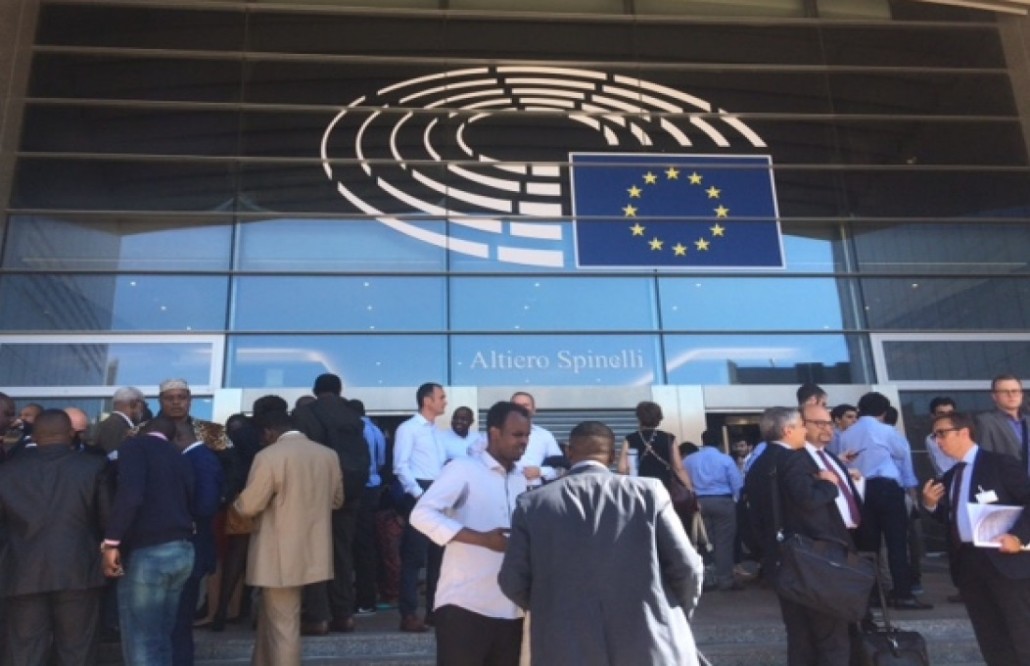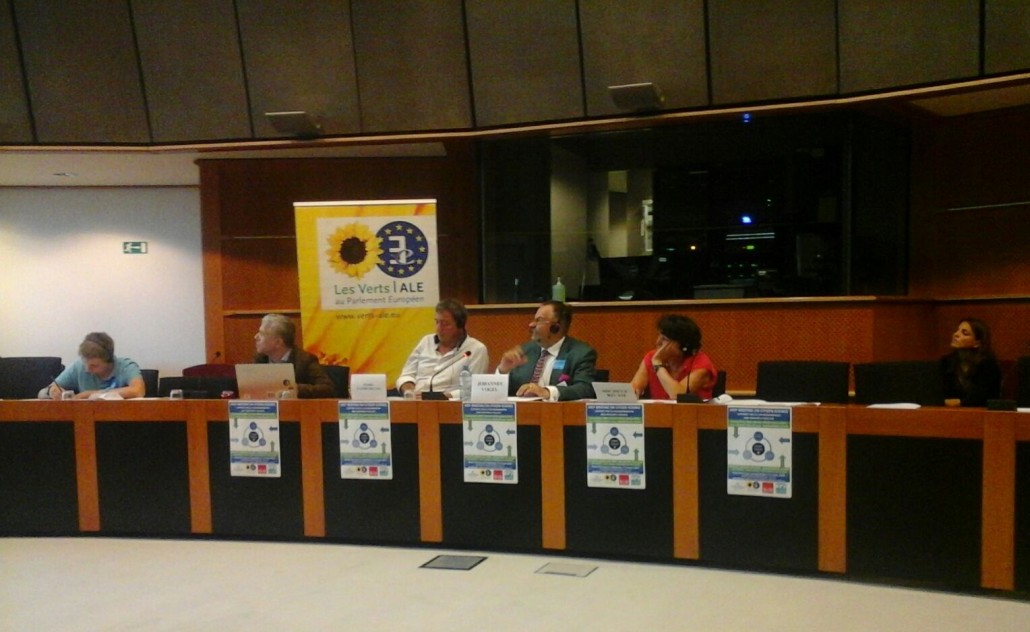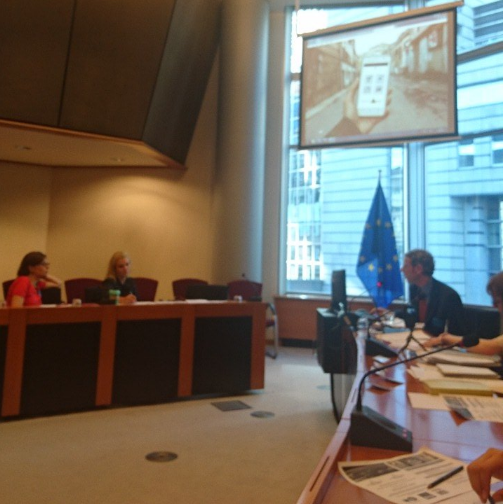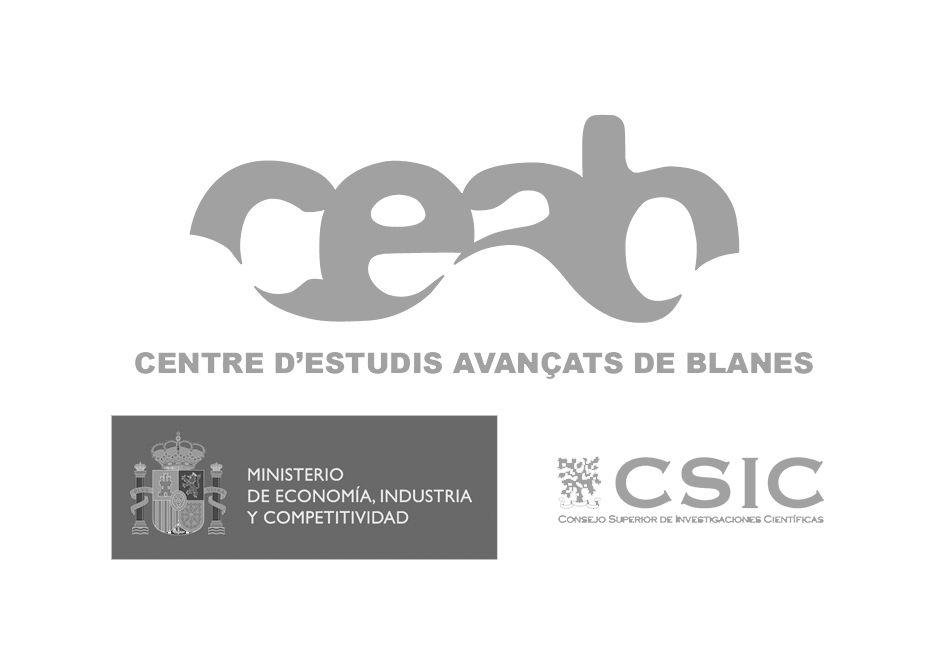The first briefing on Citizen Science for Members of the European Parliament (MEPs) was held on 7th September 2016 within the premises of the European Parliament in Brussels. John Palmer attended the briefing on behalf of the Mosquito Alert team. The event was organised by the ECSA Policy Working Group (WG).

European Parliement
The event was a great opportunity to introduce MEPs and other EU officials to the work ECSA is undertaking and demonstrate the increasing relevance of citizen science to the policy work of the EU. By opening dialogue with policy-makers, ECSA aims to raise awareness on the relevance of citizen science to policy and therefore, enhance citizen science in Europe.
John Palmer, from the Mosquito Alert team, gave insights into the role of citizen science against the spread of mosquito-borne diseases (see presentation). He outlined how citizen science is being used in Spain to record the distribution of vector carrying mosquitoes and how data is used to tackle their spread. As such, citizen science provides a powerful tool for early warning system of threats.
Now @Mosquito_Alert is presented at the MEPs briefing on citizen science, an emerging pan European project pic.twitter.com/wsFstJQoax
— Muki Haklay (@mhaklay) 7 de setembre de 2016
The Mosquito Alert scientist provided a practical example of the potential of citizen science as an early alert system and low-cost mosquito monitoring. Addressing the common concern over citizen science data quality, John Palmer showed that in regions where data collected by experts and citizens overlap, the same ‘danger zones’ will be identified. Finally, John outlined how the Citizen Science Movement in the USA and the EU are combining to establish a Mosquito Task Force Group that aims to develop a common citizen science methodology and a set of tools that can be used by citizens to monitor the spread of vector carrying mosquitoes. The work of the group has the potential to establish a global system if support and funding can be secured.

MEP briefing on Citizen Science
The other scientists who presented their projects were Professor Jacqueline McGlade, Chief Scientist at United Nations Environment Programme (UNEP), giving the keynote address on the international perspective on citizen science (see presentation). Hanny van Harkel talked about her experience of becoming a citizen scientist, joining the project Galaxy Zoo. Finally, Muki Haklay, Director at Extreme Citizen Science (ExCiteS) group at University College London (UCL), gave an overview of the current status of citizen science in different levels of government, from local to the international (see presentation).
The next steps for ECSA are, among others, to seek a further meeting with the sponsoring MEPs and key EU officials to build citizen science into appropriate aspects of the Commission’s work. Also, seek sponsorship from the UNEP and other global organisations to build a common citizen science Mosquito monitoring technique for the US and Europe. Also, seek agreement to a global citizen science mosquito monitoring programme and seek further discussions with Development Goals Research on possible citizen science inputs to future research work programmes.




